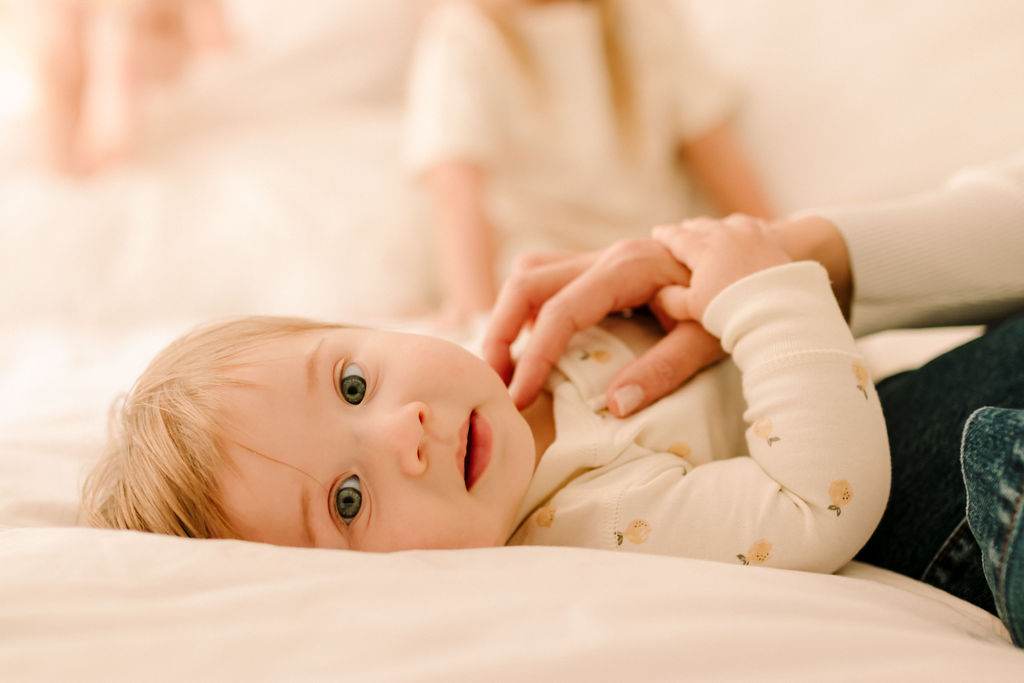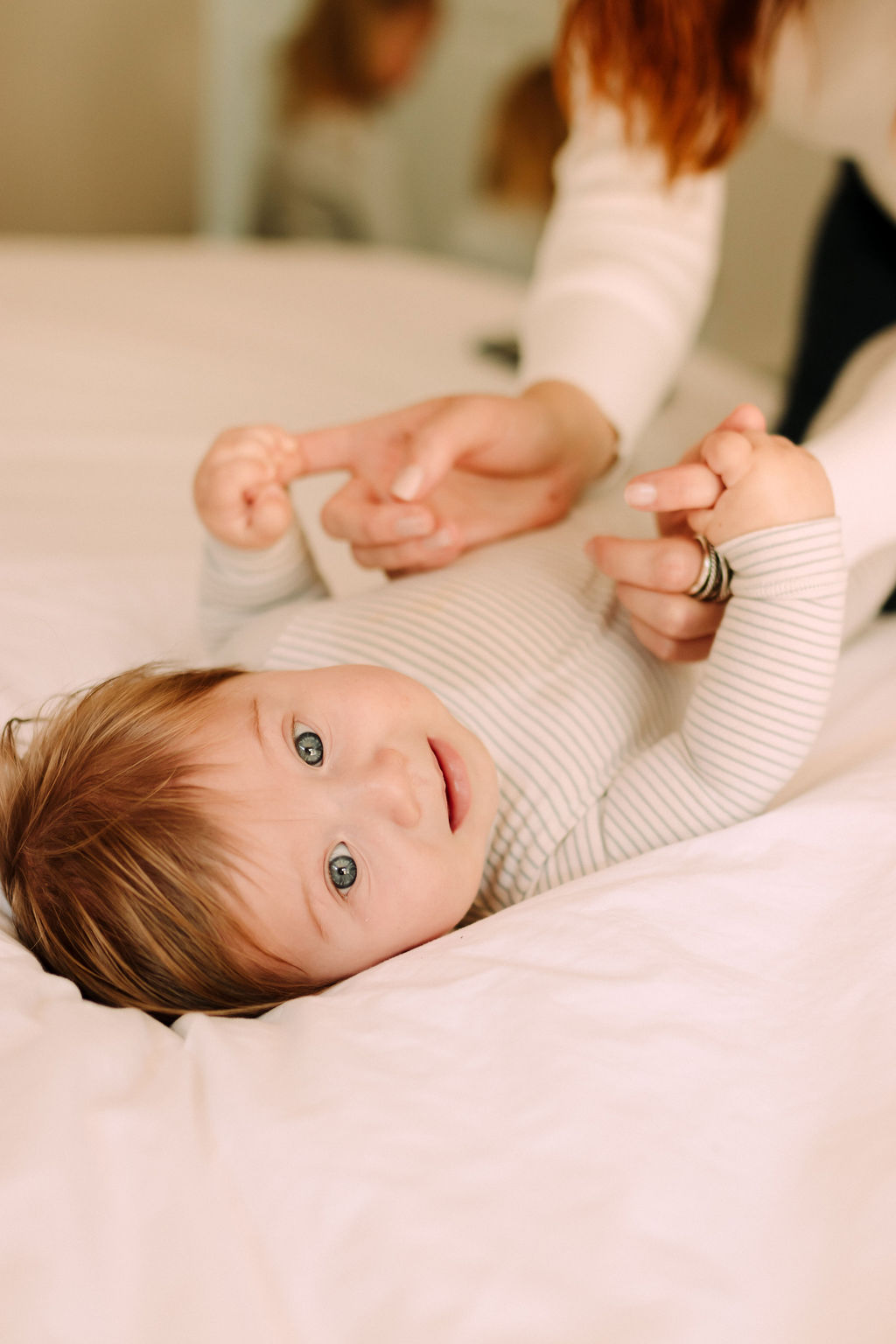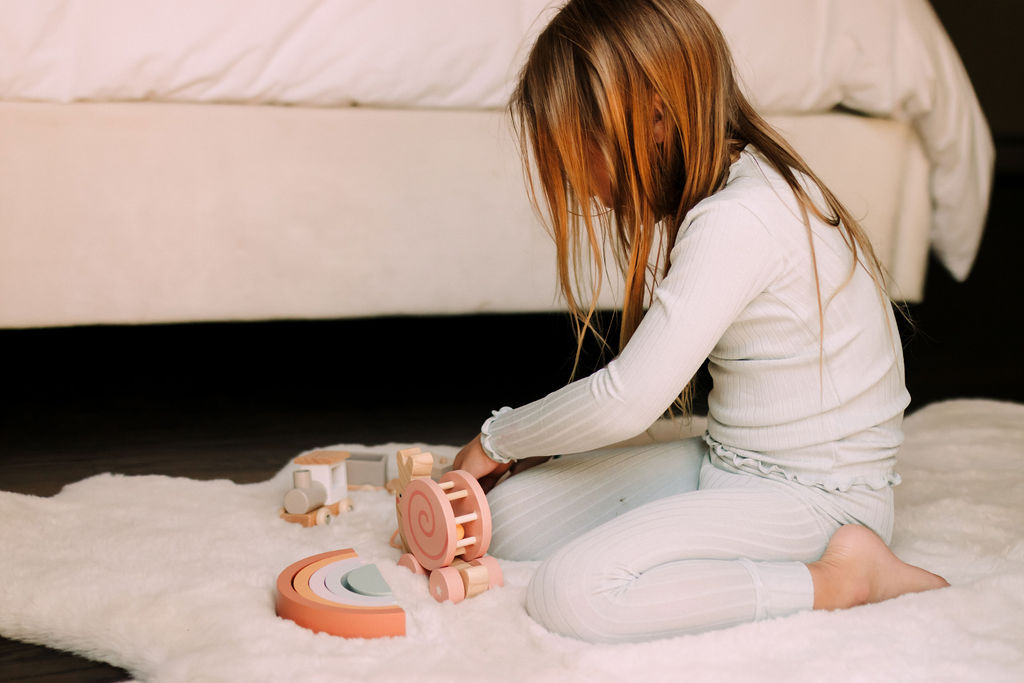From the moment your baby is born, their brain is growing at lightning speed. In the first few years of life, billions of connections are being built that form the foundation for learning, relationships, emotions, and stress management. What shapes those connections more than anything else is the comfort you give them. The way a caregiver responds to a baby’s cries, signals, and needs has a lasting impact on how their brain wires itself for the future.
Comfort and the baby brain
A baby’s brain isn’t finished developing at birth. It grows and changes based on daily experiences. When a baby is held, soothed, and cared for, the brain learns that the world is safe. This lowers stress and helps their body find calm. Your baby’s body literally borrows from your nervous system and absorbs whatever you feed it – stress, calm, nurture or neglect.
When comfort is missing, stress hormones like cortisol can stay too high for too long. If that happens often, it can make it harder for the brain to build healthy pathways for emotions and focus. On the other hand, when babies get consistent comfort, their brains release oxytocin, sometimes called the bonding hormone. Oxytocin helps babies feel connected and secure, and it strengthens the circuits in the brain that handle emotions and relationships.
So comfort is not just about stopping tears in the moment. It is literally shaping the way the brain works. Every cuddle, soft word, and gentle kiss teaches the brain how to settle and connect.
Why the early years matter so deeply
The first few years are a window of incredibly rapid brain growth. By the end of the first year, the brain has already doubled in size. Millions of connections are firing every second – and these connections are all built by… experiences.
When those experiences are warm and predictable, the brain wires itself for trust, calm, and resilience. When care is unpredictable or missing, the brain wires itself to expect stress. Babies who know comfort will come feel more free to explore, learn, and grow. Babies who don’t have that same steady comfort may stay on high alert, which can make learning and connection more challenging.
The early years matter because they create the foundation. That foundation isn’t set in stone, but it’s very powerful. When it’s built on comfort, children have the strongest chance to thrive later on.
What responsive caregiving looks like
Responsive caregiving means noticing what your baby is trying to tell you and doing your best to respond in a present and loving manner. Babies communicate through crying, facial expressions, body language, and little sounds. When you answer those signals with sensitivity, your baby learns that their needs matter and that the world is safe.
Sometimes this looks like picking up a baby who is crying. Sometimes it looks like rocking, nursing, or offering a soothing voice. It can also mean stepping back a little and letting your baby try something on their own while staying nearby for support – even while they’re frustrated. Responsive caregiving is about being tuned in, not about being perfect.
Each time you respond, you’re helping your baby’s brain build strong connections. These moments are what create secure attachment. And attachment is not just about emotions – it is about brain architecture. Secure attachment shapes the parts of the brain that handle memory, decision making, and emotion regulation.
You do not need to get this right all the time, or be perfect at it. We’re all human and no one can be attuned to their baby 100 percent of the time. Doing our best is the best we can do, and this gives our children an emotional map of safety, security and resilience.
Comfort and attachment
Attachment theory shows that babies who experience reliable comfort develop secure attachment. This doesn’t mean they never cry or that you never miss a cue. It means that over time, they learn they can count on you.
In these moments, your calm presence acts like training wheels for your baby’s stress response. You’re regulating for them until they learn how to do it on their own. When you soothe your baby’s cries, their brain is practicing how to calm down. Over time, those practices turn into skills that last a lifetime.
As leading trauma researcher Bessel van der Kolk, puts it: “The parent-child connection is the most powerful mental health intervention known to mankind.” Comforting your baby is a mental health foundation that protects and strengthens your child for years to come.
Why comfort has long-term effects
Children who grow up with consistent, responsive caregiving often do better in relationships, in school, and with managing emotions. They are usually more resilient when challenges arise.
This is partly because their stress response system works well. When they face stress, they can rise to the occasion without getting overwhelmed. Babies who don’t get comfort as often may become extra sensitive to stress, which can show up later as anxiety, difficulty calming down, or challenges with trust.
Of course, the brain can change and heal, and no one is doomed to their particular brain architecture for life. There is always room to grow, heal and repair.
As parents, we have a sacred responsibility to in the early years to create a starting point with as much comfort and security as we can.
How to be responsive day to day
Being a responsive caregiver does not mean being perfect. It means being consistent and tuned in most of the time.
Here are some simple ways it can look:
- Answer cries promptly – This helps your baby learn that their signals work and their needs matter.
- Use gentle touch – Holding, rocking, and skin-to-skin contact calm the body and lower stress.
- Talk or sing softly – Your voice can be a powerful comfort signal, especially with eye contact.
- Notice small cues – Yawning, turning away, or fussing can be early signs your baby needs a change of pace.
- Create routines – Predictable patterns for feeding, play, and sleep give babies a sense of security.
These may feel like small things, but to your baby’s brain they are life-shaping. Responsive caregiving is not spoiling. It is giving the brain the structure it needs to grow.
A foundation for life
The brain is built through relationships. Comfort is at the center of this building process. Each moment of loving care strengthens your baby’s foundation for trust, resilience, and learning.
Comfort in the early years is not just about getting through tough nights or calming a crying baby. It is about wiring the brain for a lifetime of health and connection. When babies are cared for with consistency and warmth, their brains learn to handle stress, form secure bonds, and approach the world with confidence.
Every cuddle, every soothing word, every act of comfort is building your baby’s brain. The science is clear: the most powerful tool for healthy brain development is you.








Comments +